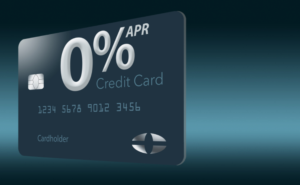Can a Low Credit Score Keep You From Getting Hired?
A credit score is a number that determines your likelihood of repaying your obligations. Banks and other financial organizations use credit scores to assess whether you qualify for a loan or a credit card.
On the contrary, a credit score is utilized for more than just financial concerns; it may also be used to assess whether or not you are qualified for a job. It can be turned down for a job due to a low credit score. Let’s start with a definition of credit scores.
Table of Contents
What Is a Credit Score?
A credit score is a number that shows your credit history. Consider it a grade reflecting how well you’ve handled your financial responsibilities, such as loans, credit cards, energy payments, and medical costs.
Calculating the information available on your credit reports yields a three-digit number. The three major American credit agencies, Experian, Equifax, and TransUnion, get information on your financial history, such as your debt and how you handle it. Credit score models like FICO and VantageScore utilize the data on these reports to build a number that represents your credit history.
A credit score varies from 300 to 850 points. The number represents your debt, such as how much you owe, how you’ve handled it, and whether or not you’ve made on-time payments. The better your credit, the higher your credit score is. The following are the credit score ratings:
- Poor (300–579)
- 580–669: Fair
- 670–739: Good
- 740–799: Excellent
- Excellent (800–850)
You should be able to keep a decent credit score if you make monthly payments on your debt obligations. Your credit score will get harmed if you miss payments, make late payments, default on loans, or have accounts that are no more in good standing.
Can Your Low Credit Score Keep You From Getting Hired?
In a one-worded answer — YES!
Like your credit score affects other aspects of your financial health, it also affects your chances of getting hired or finding a job.
How so?
Your employer may do a credit check before hiring you to ensure what the company is getting into or if you’d be a good asset if they invest in you. They must ensure you will be a liability because your low credit score will eventually tell them about your credit history and financial health.
Why Do Employers Care About Your Credit History?
Before we continue, it’s important to remember that prospective employers cannot access your credit score. Instead, they may look at your credit record, determining your low credit score.
But why are employers interested in your credit report in the first place? Simply said, certain components of the report may indicate workplace practices or behaviors they don’t desire.
For example, having multiple overdue credit accounts might indicate that you’re disorderly or don’t follow your word. If you have a huge amount of outstanding debt or a lot of credit cards with big amounts, it may indicate that you’re desperate and more inclined to steal or cheat the firm.
This may appear as though the firm is passing judgment without first knowing you, but hiring and onboarding a new employee is not inexpensive. Employers must make every effort to reduce their risks.
How To Prevent Your Credit From Affecting Your Employment?
There is no requirement for a minimum credit score to obtain work in some areas, such as finance or government. Instead, you must cultivate and practice excellent credit habits.
If you’re behind on one or even more accounts, try to catch up as soon as possible. Furthermore, pay off any bills in collections and make future payments on time. Reduce your credit card debt & keep your balances low. Applying for many credit card lines in a short period is not a good idea.

You can prevent your low credit score from affecting your employment by practicing good credit habits that benefit your credit score and ensuring the employer that you will not be liable if invested.
- Reduce Your Debt — Aside from having a plan that would help you improve your financial situation, having a plan you can share with a possible employer will be a huge plus (especially if your credit is a big negative). Having a strategy demonstrates to the company that you are willing to accept responsibility for past errors.
- Be Proactive — If you’re looking for a position requiring you to handle sensitive financial concerns, your credit history and the record will play a significant role in your potential employer’s decision. If you know that they examine applicants’ credit histories as part of the regular routine, it could be worth mentioning your poor credit history before they even inquire.
This may demonstrate to them that you have nothing to conceal, and it will place you one step closer to portraying this unfavorable issue from a positive perspective.
- Adjust Your Job Search — If nothing else works, If you’re having trouble finding work due to your bad credit, consider looking for work in a new method or start your own business! Various inventive methods to make money do not require you to work for someone else.
You might be able to work as an independent contractor, freelancer, or consultant in your network with people you already know and trust. There are several solutions available to you. Allowing your bad credit past to hold you back from achieving a better financial future is a mistake.
Final Word
So, in the end, does your low credit score affect employment possibilities?
In a gist of it, yes! Your credit score affects your employment opportunities, especially when you aim for governmental jobs or multinational companies that operate with certain rules and regulations.
In such organizations, the employer might make a credit check before hiring you as an employee to ensure that you will not be a negative influence in their organization and that you will not be a liability.
Your credit report would tell your employer, not exactly your low credit score, but your credit history and your credit records. This would give him the idea that you timely pay your obligations and take good care of your financial health.
One reason why this might be relevant is that this would tell the employer how organized you are. Having bad credit and low credit scores or numerous outstanding or overdue payments would mean you are disorganized and do not work on your words. This would connect the habits eventually to your behavior.
Prejudice? Yes!
But given the amount the employer might be spending on you, it is crucial to do so.






